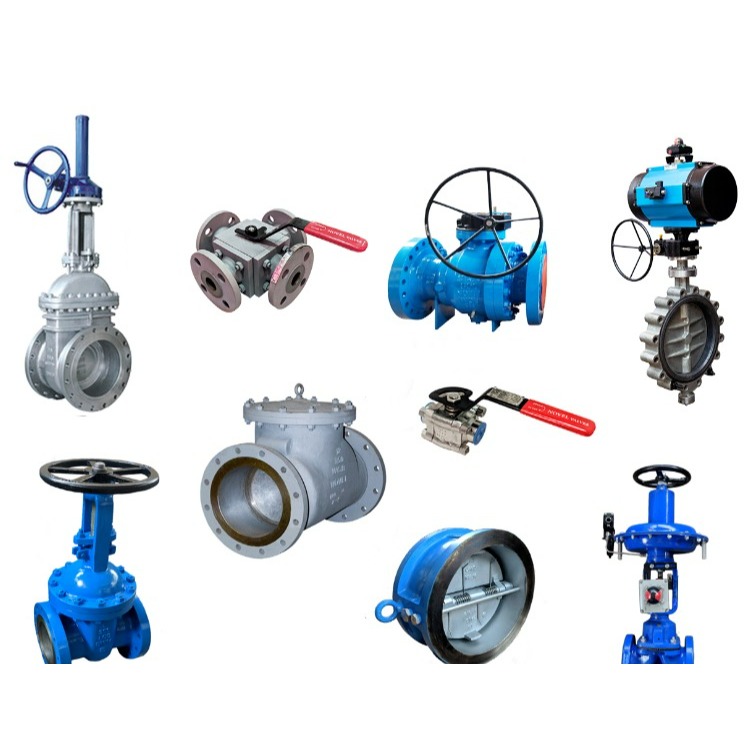Gate Valve Dealer Gate valves are essential components in various industrial applications, primarily used to control the flow of fluids in pipelines. Their primary function is to provide a straight-line flow path, minimizing pressure drop and ensuring maximum flow efficiency when fully opened. Unlike other types of valves, gate valves are designed to be either fully open or fully closed, making them ideal for applications where a quick shut-off is necessary. Design and Operation A gate valve consists of a valve body, a gate (or wedge), and an actuator. The gate is typically made of metal and is positioned between two seats within the valve body. When the actuator (usually a handwheel or electric motor) is turned, the gate moves vertically to either block or allow fluid passage. This design allows for minimal turbulence and resistance when the valve is fully open. Applications Gate valves are widely used in various industries, including water treatment, oil and gas, power generation, and chemical processing. They are particularly favored in systems where a full flow is required, such as in pipelines transporting water, oil, or gas. Advantages and Disadvantages One of the key advantages of gate valves is their low friction loss and high flow capacity, which is crucial in large diameter pipelines. Additionally, they are less prone to wear and tear compared to other valve types, extending their lifespan. However, gate valves have limitations; they are not suitable for throttling applications due to the risk of damaging the gate and seats. Furthermore, they require considerable space to operate, which may be a constraint in compact installations. Conclusion In summary, gate valves play a vital role in fluid control systems, offering efficient flow management and reliable shut-off capabilities. Their design and operational features make them indispensable in various industrial processes, ensuring safe and efficient fluid transportation. Understanding their functionalities helps engineers and operators make informed decisions in valve selection for their specific applications.
Chat with us on WhatsApp
×
This is your website preview.
Currently it only shows your basic business info. Start adding relevant business details such as description, images and products or services to gain your customers attention by using Boost 360 android app / iOS App / web portal.

2024-10-09T05:36:02
Gate Valve Dealer Gate valves are essential components in various industrial applications, primarily used to control the flow of fluids in pipelines. Their primary function is to provide a straight-line flow path, minimizing pressure drop and ensuring maximum flow efficiency when fully opened. Unlike other types of valves, gate valves are designed to be either fully open or fully closed, making them ideal for applications where a quick shut-off is necessary. Design and Operation A gate valve consists of a valve body, a gate (or wedge), and an actuator. The gate is typically made of metal and is positioned between two seats within the valve body. When the actuator (usually a handwheel or electric motor) is turned, the gate moves vertically to either block or allow fluid passage. This design allows for minimal turbulence and resistance when the valve is fully open. Applications Gate valves are widely used in various industries, including water treatment, oil and gas, power generation, and chemical processing. They are particularly favored in systems where a full flow is required, such as in pipelines transporting water, oil, or gas. Advantages and Disadvantages One of the key advantages of gate valves is their low friction loss and high flow capacity, which is crucial in large diameter pipelines. Additionally, they are less prone to wear and tear compared to other valve types, extending their lifespan. However, gate valves have limitations; they are not suitable for throttling applications due to the risk of damaging the gate and seats. Furthermore, they require considerable space to operate, which may be a constraint in compact installations. Conclusion In summary, gate valves play a vital role in fluid control systems, offering efficient flow management and reliable shut-off capabilities. Their design and operational features make them indispensable in various industrial processes, ensuring safe and efficient fluid transportation. Understanding their functionalities helps engineers and operators make informed decisions in valve selection for their specific applications.
2024-10-09T05:36:02
Keywords
- two seats
- full flow
- valve body
- vital role
- other types
- pressure drop
- fluid passage
- key advantages
- electric motor
- quick shut-off
- water treatment
- valve selection
- power generation
- primary function
- other valve types
- low friction loss
- informed decisions
- considerable space
- minimal turbulence
- various industries
- high flow capacity
- chemical processing
- operational features
- essential components
- compact installations
- specific applications
- fluid control systems
- throttling applications
- maximum flow efficiency
- straight-line flow path
- Applications Gate valves
- large diameter pipelines
- efficient flow management
- various industrial processes
- Gate Valve Dealer Gate valves
- reliable shut-off capabilities
- efficient fluid transportation
- various industrial applications

Submit Your Enquiry